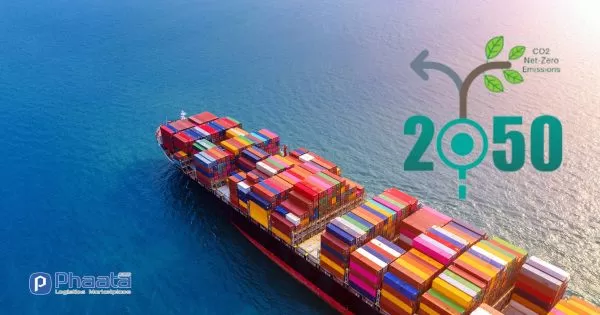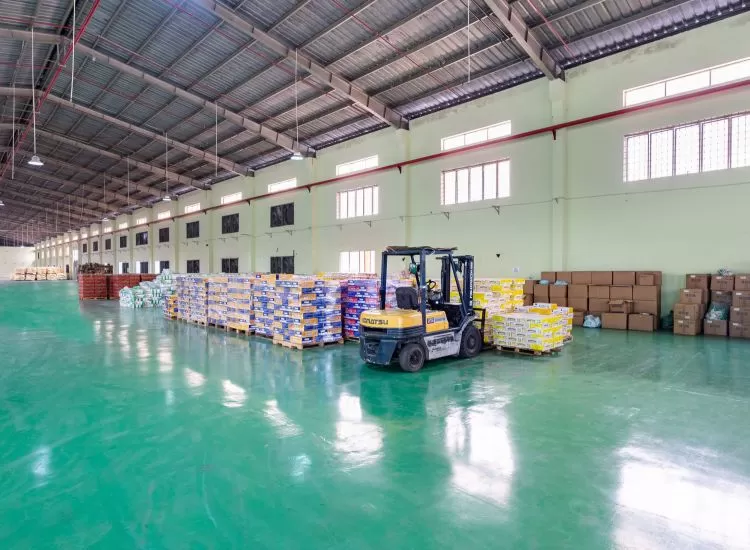Shipping industry faces challenges from climate change
The global shipping industry is causing huge carbon emissions, countries must work to come up with measures to cut pollution and is being scrutinized by the authorities this week at a meeting held by the IMO Marine Environment Protection Commission (MEPC).

Massive carbon emissions from global shipping networks, which weave across oceans and keep the world economy afloat, are under scrutiny this week by authorities, amid the context in which countries must work to come up with measures to cut down on pollution that is making the earth hotter.
In an important meeting organized by the International Maritime Organization (IMO), many countries are under pressure to agree on ambitious emission reduction targets and consider taxing pollution by sector. Currently, the shipping industry is emitting the same amount of greenhouse gases as the aviation industry.
The meeting of the IMO Marine Environment Protection Commission (MEPC), being held in London from 3-7 July, has the potential to leave countries vulnerable to climate change—especially are island nations and archipelagos in the Pacific — and some of the wealthier nations will be at odds with major exporters like China.
"The climate crisis is an existential threat to Pacific small island developing states, and many other countries, but can be seen as less urgent by countries with superior resources", Michael Prehn, the IMO delegate for the Solomon Islands, told AFP news agency.
"This is why the Pacific has been consistently pressing for the highest possible ambition in climate regulation."
Net-zero Target
The shipping industry, which is responsible for about 2% of global greenhouse gas emissions, is considered to be on the wrong track in the fight against climate change.
The industry's decarbonization efforts to date have largely resulted from the IMO's decision in 2018 to require shipping businesses to reduce their CO2 emissions by 50% by 2050, compared with levels recorded in 2008.
But this target is considered inadequate given the global level of emissions and compared with other industries, including aviation, the industry is moving towards the goal of net zero emissions by the same time 2050.
The group of countries that favor more ambitious reductions wants IMO to align its goals with the Paris Agreement's global warming limit of 1.5°C.
Some 45 countries — including the European Union, the United States, the United Kingdom, Fiji, the Marshall Islands and Norway — support the “Net-zero” target for the shipping industry by 2050.
The majority of these countries also agreed to introduce an intermediate target by 2030.
However, according to observers at the negotiations that began at the end of June before the official meeting of the MEPC took place, exporting countries, especially Brazil and China, strongly objected such adjustment.
A note drafted by China, and seen by AFP, viewed the proposals as "unrealistic" and an attempt by developed countries to increase their economic competitiveness by increasing transport costs.
A 'no-brainer'
The global shipping fleet now transports 90% of the world's commercial cargo, and emits about one billion tons of greenhouse gases each year, the equivalent of emissions from Germany or Japan.
Nicolas Entrup, director of international relations at OceanCare, said the goal of zero greenhouse gas emissions from shipping by mid-century, along with intermediate targets, would be "the necessary step forward for humankind".
“It should be a no-brainer to bring the IMO targets in line with those of the Paris Agreement,” he said. "We simply can't afford any other less ambitious path."
One immediate way to reduce emissions, he added, is to slow down vessels so that the they can consume less fuel than before.
Among proposals coming from different countries, the EU wants to achieve "Net-zero" by 2050, with emissions reduced by 29% by 2030 and 83% by 2040.
Countries like the US, Canada, and archipelagic nations vulnerable to climate change like the Marshall Islands and the Solomon Islands, want to go even further, with emissions cuts of up to 96% by 2040 .
Observers say that while some countries are still hesitant, the United Arab Emirates (UAE) — which will host the UN climate conference COP28 this year — backed a target of zero emissions by 2050, a move that raised hopes of a consensus on the issue.
A global levy on shipping emissions
But with another key proposal — imposing a global levy on emissions from shipping — it will be harder to reach consensus.
French President Emmanuel Macron supported the idea at the June Climate Finance Summit in Paris, but noted that the levy would need approval from China and the United States and other European countries to make it possible.
After preliminary IMO negotiations, a source said the number of countries supporting the levy had risen to 70, but major exporters including Brazil, China and Australia objected. Representatives from Brazil argued that the levy would only harm food security and punish developing countries.
In addition, the negotiation session also noted disagreement over how these tax revenues will be spent. There is debate as to whether the proceeds should be spent solely on decarbonization of the shipping sector, or whether certain amounts should be used to assist countries dealing with the climate impact.
The revenue from this tax could be substantial.
The Marshall Islands and Solomon Islands, which have been campaigning for a tax for the past decade, are proposing a tax of $100 per ton, with the proceeds going to support vulnerable countries.
According to the World Bank, such revenue could generate more than $60 billion in revenue per year.
Read more:
Source: Phaata.com (According to Véronique DUPONT, AFP, Phys.org)
Phaata - Vietnam's First Global Logistics Marketplace
► Find Better Freight Rates & Logistics Services























.webp)






.webp)
.webp)
.webp)





